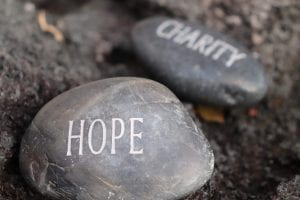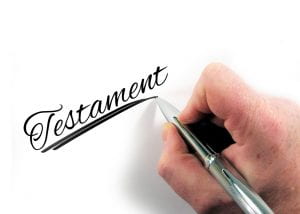This #ANZAncestryTime chat from June gave lots of tips about birth, death and marriage certificates as well as other sources to help prove the information found on these certificates.
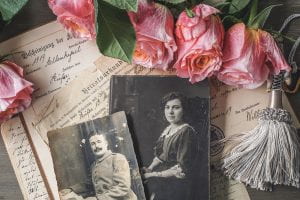
Have you an interesting story to tell about searching for births, deaths or marriages (BDM)?
I couldn’t find my GGGPs c. 1880 marriage anywhere in the Irish civil records. Eventually found it through local archive and broke chunk through a brick wall on that line. Names and addresses of 3 GGFs and from there to 3 GGMs. Also a birth around the same time – every other family birth registered – this one found registered FIFTEEN years after actual birth. I’m not sure what the delay was. I knew it was unlikely the birth hadn’t been registered since they were business owner/upwardly mobile. Baptismal record contained parents’ names so I just searched all civil until I found it.
Have one Irish family who seemed to be allergic to both baptisms and registrations. A big range between about 1860 to late 1870s. Strange thing is the younger ones were “done” and I could accept the lack of rego near 1864 but the lack of baptisms bothers me. Illiterate and a fisherman.
Tara, I’ve also searched for them in England/Wales as being at sea, that might be possible. No marriage, no births…sigh!!! And David is not a common Irish name as far as I’ve seen. Think I may have a mental block/rut now.
DM me later Pauleen (bed time here) and maybe two heads will solve your conundrum. It might be due to the region they were from. E.G. Some Donegal parishes I’ve searched only have parish records from 1860s – after civil reg. And in marginal areas civil records not always solid
Also got 2 birth certificates within the 100 year time frame via a probate claim where a separated wife suddenly reappeared to claim ex husband’s estate, had to include her girls birth certificates
I have an ancestor whose mother’s name was different on all three certificates – birth, marriage, and death. I *think* I’ve worked out who his mother was, but really need DNA to confirm it. On the #ToDoList
#research for my uncle whose #ancestors were married x2 4 yrs apart. Same #church #priest #bride #groom Different addresses #marital status for groom 😲Parish #archivist chqd orig Church records-nothing helpful. Using #Facebook to chq local knowledge
One of my GGGrandfather’s was summoned before the Balranald bench almost 10 years after the birth of his last child ‘for making wilfully false statements respecting his marriage to… for the purpose of insertion in a Register of Births (two charges)’!
He was a bigamist to boot. I never found any birth certificates for his children except the two he was summoned for. When his first wife divorced him their was WONDERFUL information in the newspaper reports!
Sometimes makes for an more interesting story when they do not register BDM events.
I discovered my mothers first christian name was not what she thought it was. She probably never even knew she had the spelling wrong. Shows you that you do need to see the original records when possible to discover more of the story.
I have new questions courtesy of a cousin on Ancestry chat today. She asked why/how our GGGF remarried my GGGM when there is no evidence of his 1st wife’s death (her ancestor). Realised I’d never looked closely at the 1st marriage
2 children from 1st marriage, 1850 & 1853 8 children from 2nd marriage 1870-1889 All born around Yass NSW. There are a number of possible deaths for the 1st wife, 1866 registered Yass a particularly interesting one.
I have a suspicious one like that. My GGF remarried my GGM about 6 months after the previous wife registered their child. I’ve not found a death anywhere in England where they were living. Maybe Ireland. Where are the children?
I’m searching for great aunt’s husband, Robert Hargreaves. Had 2 bigamous marriages in Victoria – see Trove. Disappeared after his jail time in 1871. Where did he die? One of the colonies, New Zealand, England? Did he change his name? 2 of us are hunting him!
I knew nothing about my father’s family. His parents died within a few weeks of each other when my father was 6yo. I wrote about bursting into tears at Vic Births Deaths and Marriages
it really hits you doesn’t it when you are in those record offices – life is a precious fleeting things sometimes.
I have found several births and deaths between the census records now we have MMN on the indexes in England and Wales – Mothers Maiden Name
I was told by an aunt that there was a child who had died young not sure which generation. New indexes with MMN led me to discover my grandfather’s older brother
Witness on my great great grandmothers marriage certificate ended up being her brother in law – proving who her sister married then allowed me to find them arriving in Tasmania in 1860’s
Great reminder @tasteach to spend the time looking into the witnesses. They were often family
A friend at QFHS had always banged on about the value of searching the microfiche index to BDM that we have in the library. A friend’s mother was trying to find her grandmother’s birth but could not find it on the Registry Office website. She knew she had the right date. Off we went to look at the microfiche at the QFHS library.There it was. No spelling mistakes. Just not in the online index. Human error I guess in the process of transferring. She was just missed. Check everything!
one marriage in 1866 bride registered under her mother’s maiden name as she was marrying a cousin with same surname, she had arrived in Australia under her father’s surname
I am probably the odd one out however I cannot think of any interesting stories related to my research of births, deaths and marriages. Perhaps it’s been too long since I had time to research to the memories have faded.
Searching for German names is always fun and games. The surname Zöller becomes Zeller, Zoller and, the best one, Tiller. Similarly McCorkindale has infinite spelling variations so I search for M*or*dale which gets most.
I spent 40 years looking for dad’s fathers birth. 20 years collaborating with half siblings of dad. Then finally DNA solved it. We were looking for wrong surname – he was a bigamist.
A story of not being able to find someone for a long time & then finding him under a different name entirely.

Primary sources for BDM can vary in the information they contain. Tell us about the great and not so great ones and what they contain, accessibility, cost, etc.
Irish historical records with data protection parameters are freely available on irishgenealogy.ie but they only start in 1864 (except non-RC marriages from 1845).
But always worth checking for pre-1864 marriage registered even if couple were Catholic – you can sometimes strike it lucky.
Yes, one of them might have been Catholic & they got married in the COI to give themselves legal status. In practice, it’s a very limited number of marriages in this early civil registration period.
And not make assumptions about “everyone” being Catholic…a trap I nearly fell into with Mr Cassmob’s ancestors.
Even if they had converted prior to marriage, if one of the couple was ever Protestant, a RC marriage was illegal then, unless carried out in COI/RO
Yes, very good point, Pauleen! I had assumed, then found a CoI possibility, now back to Catholic again. Wishing for a Quaker!
It pays to look in other states for births. I unexpectedly found the birth of one child in Victoria to my NSW g g grandparents. They lived there for a year apparently
I have only researched in England and our BMD records are not the best. They start earlier than many but don’t have as much useful information
The baptism of an ancestor in Cornwall which showed he was baptised at his mother’s funeral. She had committed suicide. Thanks to the clerk who made those notes. I often wonder if she had post natal depression. It wouldn’t have been understood in the 1800’s. Her death certificate states “ took her own life” verifying the note on the baptism. I’d probably not have looked at the cause but for the baptism.
Yeah, I can understand that. I’d probably have assumed it was death in childbirth if the death record wasn’t readily available.
It’s an evocative phrase. At first I didn’t get the new push to favour the phrase ‘died by suicide’, but it makes a lot of sense re understanding the mental pathology of suicide
Love Graham Jaunay webpage with what is on BDMs in each Aussie state jaunay.com/bdm.html
Irish RC parish records vary re info quality/detail. Freely available images via @NLIreland & indexed search for some Dublin/Cork/Kerry www.irishgenealogy. Dublin parish template unusually detailed wrt country: parents’ (& marriage witnesses) names addresses
In England I search with FreeBMD as bigger range, then check on GRO. NZ BDM has lots of errors in names, so you have to guess what it might be and narrow down the date
I use very many sources as I seem to research in a lot of places. FamilySearch has lots of them. England both GRO and FreeBMD, NZ BDM, Aussie States, ScotlandsPeople, Irish, Canadian, American sources. I go everywhere!
I love the NZ certificates as they hold a pile of useful information. I love their website bdmhistoricalrecords.dia.govt.nz/search. You can figure out the actual date if you keep reducing the search date fields. Great for the distant branches when delaying cert. purchases.
Yes I use this trick on NSW BDM too, narrowing down date when I don’t want to buy the certificate for far distant spouses etc., works for births deaths and marriages
one of my husband’s ancestors appeared in latest Lost Cousins newsletter about to marry for the 5th time
I love the Tasmanian BDM from 1803 to 1900 – all digitized, online and cost nothing. Can also get many BDM till 1930 from CDROM for free as well
Click on Tasmanian names index then put name in search area, use the filters and then you can download copies etc or use that snipping tool libraries.tas.gov.au/family-history…
I have been redoing my tree in FH7 and looking at certificates there are so many errors some are intentional to hide illegitimacy but others may be not
Love Queensland BDMs with so much information. Scottish records also have a lot of content but I do wish death records included burial information. English Records so mediocre it’s frustrating. I like being able to order online @ minimal cost.
oh yes I hear you re the English death certificates. I wonder why they bothered really. It just about says – they died – and that’s it. Next to useless.
Especially when they were born a long time ago as clearly they will have died. While there is little family details compared to other places the place & cause of death can be interesting.
Even using Scotlands People without buying the records can give so much information. I found a family 3 days ago for a distant cousin – followed my nose and there they were in Cadder
I love that the indexes in Qld & Vic have maiden surnames unlike NSW where it’s the most expensive to order a certificate & the index has only Christian names for parents
Scottish BDM’s have so much information on them. Norwegian records are fabulous too as long as you understand the naming systems (plural)
Remember the bad old days in Queensland when you used to have to request the marriage date of the parent’s when ordering a birth certificate. So pleased the UK registry office now seems to have seen the light regarding including mother’s maiden name.
I find the easiest BDMs to access are Victorian, but most of my Australian research has been in Vic, so I’m more familiar with Vic records. Vic BDMs do contain lot of info and are easily accessed online with immediate download
I have only researched in England and our BMD records are not the best. They start earlier than many but don’t have as much useful information
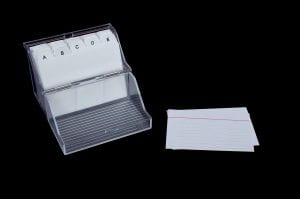
What secondary sources have helped you with BDM records? How do you resolve any data conflicts?
@PRO_Vic metadata for probate/will files include date of death, so just searching their catalogue is very helpful (thanks PROV volunteers!). Early ones are digitised too. They can be very interesting (or boring) and fill in family blanks. I’ve also viewed more recent probate files @PRO_Vic in person and often a copy of the official death certificate is included.
my mother’s birthday books across the years she had added many births and deaths
Great tip! Another tip: don’t throw out those books or address books.
Using christening/baptism records you need to be careful sometimes several children were baptised on the same day.
accessing Vic teacher records through Ancestry often reveals full birth date; this helped me with my GGrandmother’s birth year, for which I’ve not been able to locate birth certificate
yes excellent advice Helen. I have teachers in my family and much of the biographical information was originally obtained via Inspectors Reports in Archives and then confirmed through certificates.
Ryerson Index, Newspaper BDMs, Free BDM and genealogy sites
Ryerson index excellent but also Savill index for South Aust. Secondary Sources for BDM – Savill Index of The Advertiser Funeral Notices. See story here slsa.sa.gov.au/news/story/202…
We have the Wilson Collection wilsoncollection.co.nz
I use Trove & Papers Past to find those more recent than BDM sources. I love Papers Past. Wish there were more of them available
Newspapers of course, many Catholics in SA in early years did not register births, but they nearly always added death notices to newspapers. Today I’ve just found 2 more children of one family without birth registration
Some great tips from Judy – also see links to website pages at end of this post
Tip1: Before buying certificates, check whether they’re available (FREE) in files at the Archives. Record series where I’ve found certificates are listed at bit.ly/3cJUdLj.
Tip2: Biographical data in Hospital Admission Registers is often more complete and/or more accurate than data in death certificates
Tip3: If you can’t find a death certificate, look for an inquest. There are inquest files for many deaths that weren’t registered. This definitely happened in QLD & Victoria, & probably elsewhere. I’ve also seen (in Queensland) inquests for some stillbirths, which at that time weren’t registered as either a birth or a death
Tip4: On the FreeBMD Website (civil registration indexes for England/Wales BDMs), add Postems to entries for people you’re researching.
Tip5: Check the names on the Web page for the Miscellaneous Australian Certificates Index: bit.ly/3cI1YBk. For certificates mentioned there, a copy only costs $5.
This is a terrific tip! Didn’t know it. What I like about FreeBMD is the ability to search marriages easily, & when I’m being specific to a family, to return more that 5 years of results at a time (as with GRO)
I check on Cemetery records in NZ & Find A Grave – look at the photo if there is one. Often correct information from other sources. Did 2 today, 1 yesterday. I state in my @WikiTreers profiles any conflicts – had 1 today, gravestone versus someone’s memory!
great #records to help put peeps in time&space generally & find children’s birthdates are #school admission registers. #blessed in #Queensland many for #Government #schools #digitised avail #Online @QSArchives
Re transcriptions – search all available! Example: Rootsireland which has helped me with so much research (generally more accurate and more complete transcriptions than e.g. FS, FMP, Ancestry) doesn’t contain the transcripts of two baptisms for GGUs.
Newspapers, Calendar of Wills, Burials (1) A marriage notice confirmed father’s residence and death bef. 1877. (2) A Calendar of Wills entry gave DoD (not found in civil) (3) Auctioneer’s ad verified relationship between two men (4) burial = clues ->breakthrough
Military records were fantastic for me. I had an Irish soldier marry a Welsh woman but we didn’t know from where. His service record gave marriage date in UK & I was able to go back 4 generations from her on the Welsh line thereafter.
employment records will often provide a date of birth and probably a place of birth. School enrolment registers will also give a child’s approximate age so if you can’t find them anywhere else this is helpful.
remember those local histories or family histories written by your relatives might also be secondary sources
other places to find BDM information include military service records which provide a place of birth & parent’s name. A death certificate might be included with a will & sometimes a marriage certificate or an inquest provide provide additional information.
PapersPast, Trove & British Newspaper Archive are regular haunts for me. Then a time on Google searching for odd indexes. Hints from online trees – though these need to be verified.
Using christening/baptism records you need to be careful sometimes several children were baptised on the same day
… sometimes at the same time #parents were #married
Yes – I’ve found 3 batches x 2 kids each time in 1840’s in Windsor & Sydney – concluded that the family weren’t regular church goers
That’s true. I found the first five siblings born in Australia were baptised on one day
I’m guessing baptismal records and anything like birth dates on tombstones et al. I would resolve by trusting the record closest in time to the event, if that makes sense.
Agree. Looking at marriage and death certs re. age I lean towards the marriage date, but there are always exceptions!
where there’s a conflict-of-interest between a civil registration and a parish baptism event, I generally opt for the baptism, but will note the difference. This is because if the parents were late registering they may have had to pay a fine.
my favourite alternative to civil certificates Is parish registers which can give you some of the same information. This applies even in Australia and has helped me solve missing information from early Queensland records.
Wills, and newspapers! Both full of detail, and especially helpful with women’s married names.
I have not encountered any major conflict in the newspapers using indexes you need to be aware of possible delay in registering births and even deaths
the best secondary source has to be the newspapers the person I just mentioned was in the newspaper and led to searching for further marriages than those known
Family reunions can help with living or just passed relatives, but still need proving eventually. Trove has also helped up to the 1950s.

What are some of the factors that might create a challenge finding the correct person? Any suggestions on how to overcome finding a difficult BDM record?
A GGM & GGF put a notice in the WGTN newspaper about their marriage. No registration or church records found. One child’s birth cert has marriage in MELB. No MELB records. No passenger. No records either divorcing their first partners or deaths yet found
Could this be a good one for another pair of eyes?
Or actually getting serious and working through it with a plan and timelines, etc rather than just random checking.
Checked at Archives in Wellington years ago when I just started however never recorded what I checked as I did not know about recording negative results. Or even if I got the right records to check. That’s why I need to do it properly this time around.
With Irish ancestors: unofficial name changes, dodgy ages. Best advice I can give is keep an open mind, think outside the box, check the period covered by records, and use FAN!
Oh yes on the Irish dodgy ages, husbands 3x gt grandparents emigrated claiming to be 10 years younger than they were! Could not have been married in 1832 at age 8 and 12😂 Found their ages on deaths, both in Adelaide hospital register.
And even those ages may not have been correct unless someone went back to the original parish records to confirm year of birth.
Yes, I agree but probably as close as I’ll get with the births likely to have been 1808-1812 pre the Galway birth registers currently available
For me, the biggest challenge is common names. Byrne was the most common surname in Dublin, at 1 in 10. AND, the Irish used the same given names in every family. AND two grandparents were Byrne. Solution = Time + line-by-line searches. Maybe!
if I knew the answer to this question I’d have all my brick walls knocked down! I think some of my ancestors just weren’t registered.
Bought a NZ printout of a birth for an Aussie cousin (too hard to buy from overseas). Solved the mystery of her DNA matches. Brief marriage that produced one child. Built her tree in a few minutes
#ANZAncestryTime A4 I wish I had the answer for this. All I can suggest is try and be self-aware when doing this kind of frustrating research. Are you fresh and rational or tired and emotional?Do it only when you’re on your game and for a short time. Note search terms and dates. pic.twitter.com/3GahSLMtuN
— alex daw (@luvviealex) June 15, 2021
Surname changes are the thing I find most challenging. My g grandmother was registered with the German family name but for younger siblings the name was different.
I recommend buying certificates rather than a transcription agent if you have non-English ancestors. As a family member you are more likely to recognise names and places.
Photographs in this collection from the New Zealand Tung Jung Association, a Chinese county association of people from or descended from people from the counties of Jung Seng & Tung Goon (Zheng Sheng, Dong Guan), east of provincial capital Guangzhou. tungjung.nz/portraits/
a frequently mis-spelt name (even with fuzzy matching). I think I have about a dozen spellings for Farish, various cousins have different surnames now
My Jones’ and Taylors’ are hugely challenging along with their ever repeating christian names
Common names, i.e. NINE William Browns died in Victoria in 1921, several close in age; death notice placed by his sister, sourced via Trove, helped me find him, then an inquest record (alas) too
I highly recommend enlisting the help of other genie friends. Fresh eyes are always amazing 🙂
I agree with this tip Alex. Two sets of eyes can often solve a long standing brick wall. I’ve had experience of this a couple of times
if you know the exact date of birth and the first name sometimes it pays to not include the surname in your search
I have a James Smith who died in 1901 there are 2 of them died that year same age and district so burial record helps to confirm which is correct along with census
Bigamy, name changes – ways to solve now include DNA
Spelling variations always cause a challenge when you’re trying to find someone with an unusual name. The information on the certificate may include big gaps which happens with the earlier Qld records.
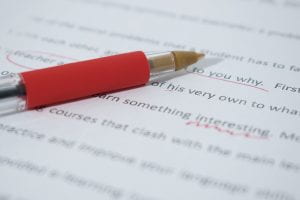
Blog posts relating to topic
Judy – Postems on FreeBMD, Webpage tips searching in Queensland, Webpage hospital admission records, Genealogy advice and indexes, Miscellaneous Australian certificates index, Queensland genealogy blog
Pauleen – certificates,
Jennifer – at the record office,
Claire – results in unexpected places

